HIGH ACCURACY: PCAP touchscreens have high accuracy and precise touch recognition, making them suitable for applications that require high precision, such as corporate collaboration, engineering, and gaming.

MULTI-TOUCH CAPABILITIES: PCAP touchscreens can support up to 100 simultaneous multiple touch points, making them more suitable for advanced gesture recognition and multi-user applications.

DURABILITY: PCAP touchscreens are made of durable materials, such as glass, which can withstand wear and tear, making them suitable for use in high-traffic environments.

IMMUNITY TO ENVIRONMENTAL FACTORS: PCAP touchscreens are not affected by external light sources, making them suitable for use in bright environments or outdoor settings.

LOW PROFILE: PCAP touchscreens tend to be thinner and more aesthetic, making them suitable for consumer electronics and other applications where design is important.

VERSATILITY: PCAP touchscreens can be used on various surfaces, including glass, and can be integrated into various devices, such as smartphones, tablets, laptops, and large format, interactive digital signage.

WATER AND CHEMICAL RESISTANCE: PCAP touchscreens are water and chemical resistant, making them suitable for use in industrial, medical, and other environments where exposure to liquids is a concern.

TOUCH GESTURE SUPPORT: PCAP touchscreen technology supports a wide variety of touch gestures, including swipe, pinch, rotate and more, making them suitable for gaming, navigation and other interactive applications.
PCAP Metal Mesh allows TSI Touch to build touch solutions with greater accuracy, higher performance, and superior optical clarity.
Metal Mesh provides greater signal strength than other varieties of PCAP, bringing greater accuracy and faster performance to our touch solutions. PCAP touch technology relies on very small signal strength differences between the drive and sensor layers to determine where and when a touch happens on the screen. Metal Mesh technology allows the touch controller to prioritize touch events over low-level electromagnetic interference effectively.
METAL MESH SPEC SHEET QUESTIONS? CONTACT USA PCAP touchscreen is made up of a layer of glass with a grid of transparent electrodes (often called “ITO” or Indium Tin Oxide) that are applied to the surface, creating an invisible grid of electrical charges on the surface of the touchscreen. When a finger or stylus comes into contact with the screen, it disrupts the grid of electrical charges, and the touchscreen’s controller can detect the exact location of the touch by measuring the change in the electrical charges.
PCAP touchscreen technology also supports multi-touch, where it can detect multiple touch points at the same time. This allows for advanced gesture recognition, such as pinch-to-zoom, swipe, rotate and more.
Contact us for info!
PCAP touchscreens are increasingly more common in the digital signage industry. Projected Capacitive (PCAP) touchscreen technology is best suited for applications that require high precision and multi-touch capabilities, such as engineering, gaming, and interactive digital signage. Applications for PCAP touch include, but are not limited to, the following: